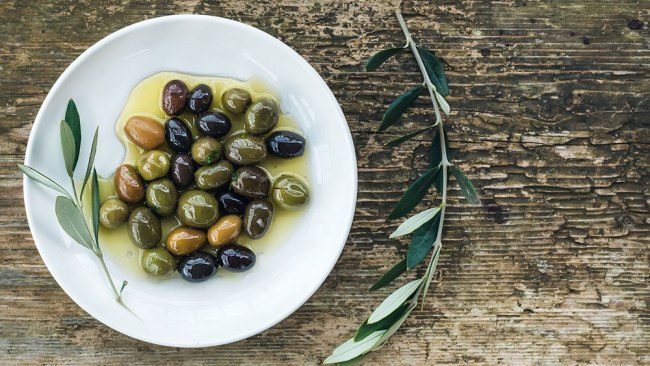If you’re on a weight loss journey, you may be wondering how certain foods can fit into your plan. One such food that often sparks curiosity is olives. These small, flavorful fruits are packed with healthy fats, but how many should you be eating per day to support your weight loss goals? In this guide, we’ll find out the role of olives in weight loss and provide some guidance on how to incorporate them into your diet effectively.

Contents
How Many Olives Should I Eat A Day For Weight Loss?
When it comes to weight loss, portion control is key. The same goes for olives. While olives can be a healthy addition to your diet, it’s important to consume them in moderation. So, how many olives should you eat a day for weight loss?
1. Mindful Moderation
To maximize the benefits of olives for weight loss, it is recommended to consume them mindfully and in moderation. This means being aware of your portion sizes and not going overboard. While the exact number of olives may vary depending on factors such as your overall calorie intake and other dietary considerations, a serving size of about five olives is a good starting point.
2. Calorie and Sodium Content
It’s important to note that even though olives are low in calories, they can still contribute to your overall calorie intake. So if you’re counting calories for weight loss, keep track of the number of olives you consume. Additionally, be mindful of the sodium content in olives. Too much sodium can counteract your weight loss efforts and contribute to water retention. According to the USDA Dietary Guidelines, adult men and women should not consume more than 2300 milligrams of sodium per day. Consuming just 15 olives would account for over 25% of your recommended daily sodium intake.

3. Individual Needs
It’s also essential to consider your individual needs and preferences when determining how many olives to eat a day for weight loss. Factors such as your calorie goals, overall diet, and level of physical activity play a role. Consulting with a nutritionist or registered dietitian can provide personalized guidance and help you determine the appropriate amount of olives to include in your weight loss plan.
The Benefits of Olives for Weight Loss
When it comes to weight loss, olives are a fantastic addition to your diet. They not only offer a burst of flavor, but they also come with numerous health benefits. Incorporating olives into your meal plan can provide you with the following advantages:
- Good Source of Healthy Fats: Olives are rich in monounsaturated fats, which are considered healthy fats. These fats can help reduce inflammation, improve heart health, and aid in weight loss. Consuming foods that are high in healthy fats can also help you feel satisfied and full for longer periods, reducing the likelihood of overeating.
- Packed with Fiber: Olives are a great source of dietary fiber. Fiber is essential for digestion and can help regulate your appetite. By including fiber-rich foods like olives in your diet, you can promote healthy digestion, maintain a healthy weight, and prevent overeating.
- Antioxidant Powerhouse: Olives contain plant compounds known as phenols, which are potent antioxidants. These antioxidants help protect your cells from damage caused by harmful free radicals. Including olives in your diet can contribute to overall health and well-being.
Which olives should you eat?
Here are a few factors to consider when selecting olives:

1. Olive Varieties:
There are various types of olives available, each with its own flavor and texture. Some popular varieties include Kalamata, green olives, black olives, and Spanish olives. Consider trying different varieties to find the ones you enjoy the most.
2. Preparation Methods:
Olives can be prepared in different ways, such as brine-cured, oil-cured, or stuffed. Brine-cured olives are soaked in saltwater, while oil-cured olives are soaked in oil. Stuffed olives, on the other hand, are usually filled with ingredients like cheese, peppers, or garlic. Be mindful of the additional ingredients used in stuffed olives, as they can add extra calories.
3. Serving Portions:
While olives are a healthy addition to your diet, it’s essential to consume them in moderation. Due to their high calorie and fat content, it’s recommended to limit your intake. A general guideline is to consume about 5-7 olives as a serving, depending on the size and variety. Remember to account for the calories from olives in your overall daily caloric intake.
4. Quality and Freshness:
Choose olives that are of high quality and freshness. Look for olives that are plump, firm, and have a vibrant color. Avoid olives that appear wrinkled or discolored, as they may be less fresh.
Frequently Asked Questions
How many olives should I eat a day for weight loss?
Eating 10 olives before every meal would provide the body with the necessary monounsaturated fatty acids for digestion and weight loss. These essential fatty acids can also boost energy.
Is it OK to eat 30 to 40 olives?
Consuming too many olives can lead to negative effects due to their high salt content, such as high blood pressure and calorie overload due to their fat content.
What are the side effects of eating olives every day?
While olives and olive oil can be beneficial when consumed in moderate amounts, excessive consumption may cause bloating, gastritis, or weight gain.

Hello, I’m Ravindra. Over the years, I’ve immersed myself deeply into the world of fitness and health, transforming both my body and mind. Writing has allowed me to share my journey, insights, and expertise with those just starting out and seasoned fitness enthusiasts alike. Beyond just routines and diets, I believe in inspiring others to adopt a holistic approach to well-being.
